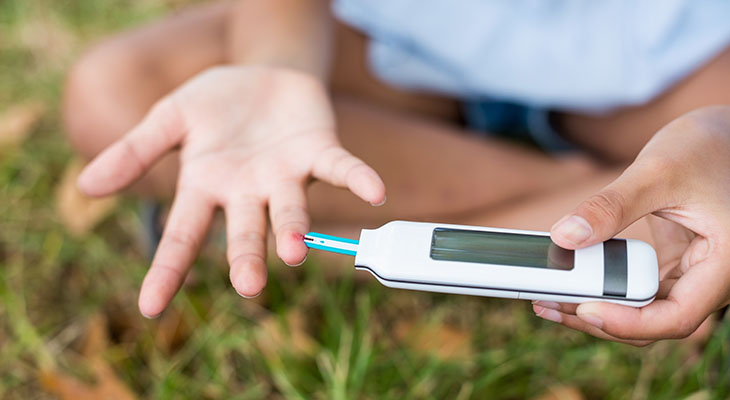Summers have come. Summers can be really challenging for people with diabetes. In hot weather, it is hard to keep blood sugar in check, the diabetic patient is at increased risk of developing heat exhaustion. In some places, it is hot plus humid. This combination makes it even harder for diabetic people to manage their blood sugar. The humidity doesn’t allow the sweat to evaporate, thus making it harder to stay cool. Hence, it becomes important to keep a close watch on your blood sugar levels, take proper precautions and avoid it from getting too high or too low.
People with diabetes are predisposed to get dehydrated more quickly than people without diabetes. With insufficient hydration, blood glucose levels will get raised that further causes increased urination which further adds to water loss, all this can be very much harmful.
Signs of mild to moderate dehydration – fatigue, less urine, lethargy, increased thirst, headache, dizziness, dry mouth.
Signs of severe dehydration include low blood pressure, rapid heart rate, dark yellow colored urine.
Tips to manage blood sugar effectively
1. Monitoring blood sugar – You may need to check your blood sugar more often than your regular time. Consult the doctor for insulin dose.
2. Eating habits – strictly avoid alcohol, soft drinks, caffeinated drinks. They can raise your blood sugar and may cause dehydration. Drink sufficient water to stay adequately well hydrated.
3. Summer guidelines – Avoid going out in the sun at peak hours i.e from 11 am-5 pm. If you have to go, carry an umbrella, to cover yourself from direct sunlight. Wear a cap, hat, or sunscreen to protect yourself. Preferably go out in cooler hours that is after 5 pm. Wear cotton loose-fitting clothes so as to ease evaporation of sweat.
4. Keep insulin in the refrigerator until it is open. Once it's open, keep it at room temperature. If you have left insulin inside your car, then discard the whole pack as the insulin gets denatured. Always park your vehicle in covered parking or in shade. Avoid sitting in a parked car.
Family members can help the diabetic patient to follow all procedures and steps so as to keep blood sugar and hydration at a good level.
Disclaimer: The content on this site is for informational purposes only, and should not be taken as professional medical advice. Always seek the guidance of your doctor or other health professionals for any questions you may have regarding your health or a medical condition.

 Diabetes patients need to be extra careful with their blood sugar in summer. Here are some tips that will help them to control their blood sugar easily and effectively.
Diabetes patients need to be extra careful with their blood sugar in summer. Here are some tips that will help them to control their blood sugar easily and effectively.










.jpeg)


.jpg)






.jpeg)



.jpg)


.jpg)




.jpg)


